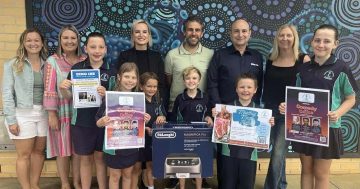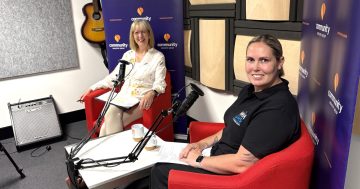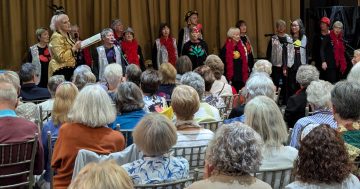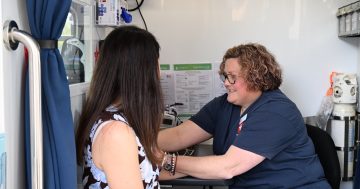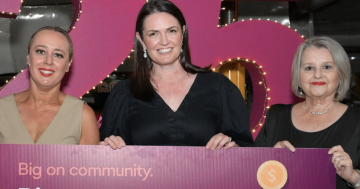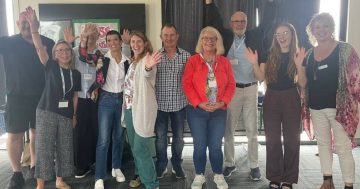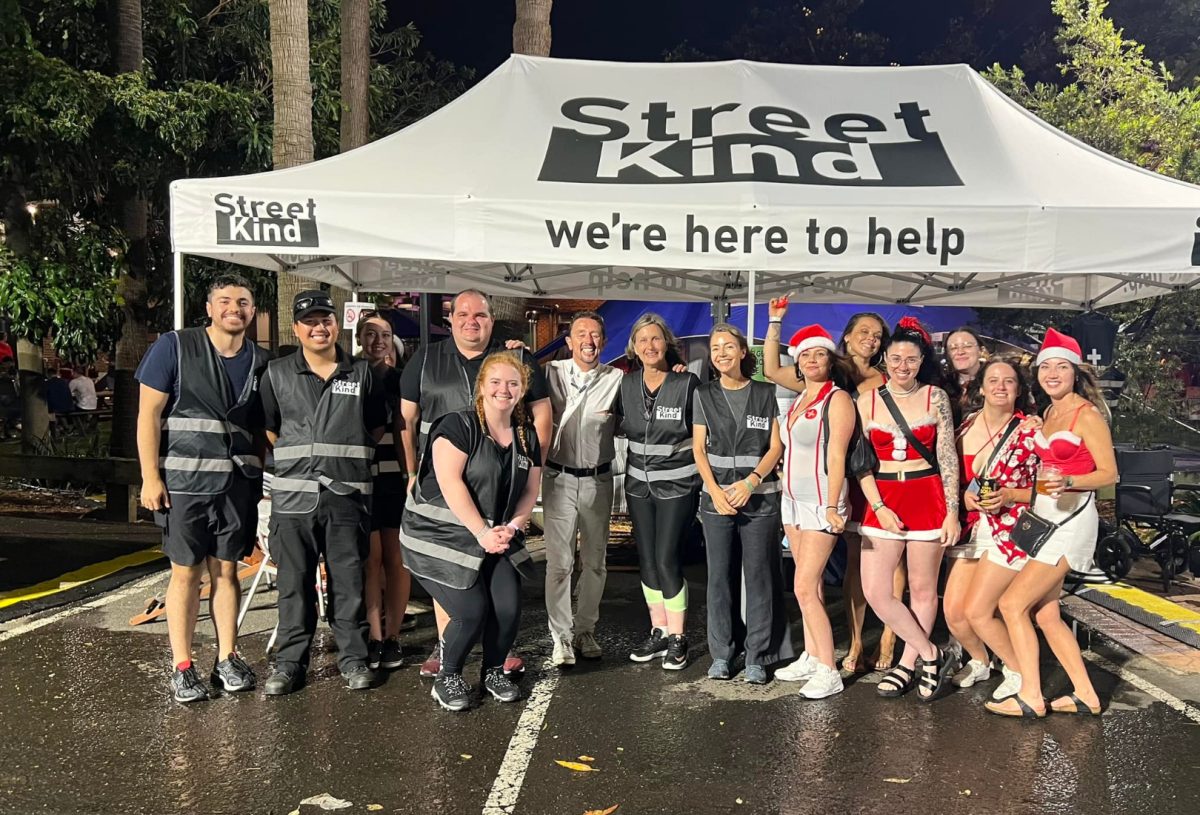
StreetKind helped many people during the SantaFest Pub Crawl in Wollongong in December. Photo: Supplied.
On any given Friday or Saturday night in Sydney, the StreetKind team can be spotted doing everything from helping an inebriated person sober up, offering a homeless person a kind word or defusing a potentially violent situation.
A year ago, Jamberoo woman Natalie Zelinsky started StreetKind to build kinder communities and encourage social behaviours that prevent harm. Now she would love to see the program adopted closer to home in Wollongong to prevent good nights going bad on a regular basis.
Natalie said the program had already run as part of the 2023 Wollongong SantaFest Pub Crawl in December, where they were able to support many people at the North Gong and Crown Street Mall.
“We did a pop up at SantaFest in Wollongong in December with (SantaFest organiser) Neil Webster and he has suggested he’d like us to support it again this year,” she said.
“Wollongong would really benefit from such a program, but there’s a fair bit of logistics to get a program like this up.”
She said on the night of SantaFest, the program was invaluable to the community.
“We helped quite a number of people who were, for a range of reasons and not necessarily related to alcohol, vulnerable on that night,” she said.
“I guess the challenge is, when we did that program in Wollongong, I brought the teams and volunteers down from Sydney and we also had a local volunteer, but to bring it down more regularly we’d ideally need to partner with others.
“It would be great to have the local Liquor Accord and venues, local government, NSW Police and University of Wollongong all talking together about this really powerful program.”
For the program in Sydney, Natalie has partnered with Charles Sturt University, with StreetKind regarded as its preferred community placement program for paramedicine students.
“It would be great, for example, if we could partner with the University of Wollongong, not just for the benefits of a placement experience for medical, nursing or psychology students, but also because a lot of their students go out in Wollongong,” she said.
Natalie said the police had been supportive of the program in Sydney and were keen to see it in Wollongong, even if a summer-only program.
She is a volunteer for StreetKind, with employment outside the charity.
Natalie spent eight years at a harm prevention not-for-profit which closed in 2022. She saw the gaping hole left when the program ended and decided to use her skills to start StreetKind and ensure much-needed harm prevention services were available to the community.
Initially, StreetKind did a three-month trial in partnership with Place Management NSW, which was followed by a three-month trial at The Rocks, which were both successful.



StreetKind has now been nominated for an award with the Australian Institute of Criminology because of its impact on harm and violence prevention.
Volunteers work Friday and Saturday nights from 10 pm to 4 am, with 18 to 25-year-olds the predominant demographic being helped in an array of situations.
“Each site’s needs can be very different – even between Darling Harbour and The Rocks is very different,” she said.
“In Wollongong, when we were at North Gong, we were providing significant phone charging services, mental health first aid, basic first aid, as well as Chupa Chups, which are good for people who may be under the influence of certain drugs,” she said.
At Crown Street Mall, volunteers were predominantly supporting inebriated people and the team provided footwear to some women.
“When we were at the mall, there was a very vulnerable female,” Natalie said. “She had no money and had travelled from down the coast with no way to get home, so it took us about two hours to help her to sober up sufficiently and an hour within that time to find a way for her to get safely to a friend’s house where she could stay.”
She said, in Sydney, the incidents ranged from rehydration, helping those separated from their friends, escorting people to transport or accommodation, deflecting conflict and the escalation of violence, preventing physical and sexual assault, suspected drink spikings, welfare checks on the homeless, and providing first aid for a range of pre-existing medical conditions that may have flared up.
“Sometimes it’s just providing basic service referrals, a few kind words, some water and a quick phone charge or a kind word to the homeless people,” she said.
“A lot of the time the people we help might have ended up going by ambulance and clogging up the health system because they’re quite vulnerable, but they’re not seriously ill.
“Effectively, our program ensures that police and ambulance can focus on the more serious cases.
“It’s probably the most unappealing shift for people to volunteer on, because it means you’re giving up your weekend, but it’s really rewarding when you see what a difference it makes.”
She said the impact reached beyond patients, as shown by results from a two-year research study completed by UNSW Sydney on another program.
“Essentially what they found was every dollar invested in the program generates between $2.69 and $3.83 of benefit to the community,” she said.
“That would mean if Wollongong did something like this, its other services would benefit because whatever we support means there’s less drain on those services that would normally be impacted if the program wasn’t being implemented.”









